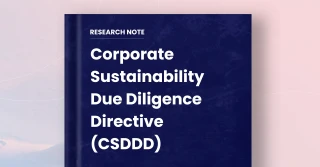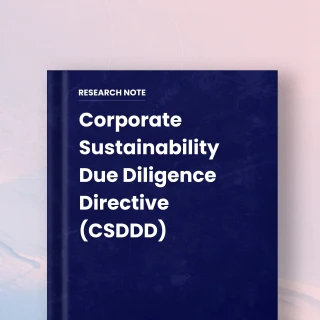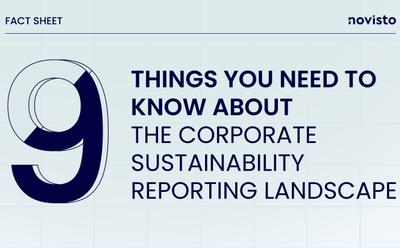Promoting Corporate Sustainability: the CSDDD's Accountability Measures

A comprehensive guide to the CSDDD
The Corporate Sustainability Due Diligence Directive (CSDDD), initially proposed by the European Commission in February 2022, represents a pivotal change in corporate accountability by embedding human rights and environmental responsibilities into business operations and value chains.
As the Directive takes effect in July 2024, companies must navigate new requirements and enforcement mechanisms to ensure compliance.
What you’ll learn:
Our updated guide provides a comprehensive analysis of the CSDDD, including:
- The scope and applicability of the Directive to large EU and third-country companies;
- Key requirements, such as the adoption of transition plans aligned with the Paris Agreement;
- The enforcement system, combining civil liability and revenue-based fines for violations of the due diligence duty;
- Practical steps for integrating due diligence into company operations.
Why this matters now
The CSDDD was formally adopted on April 24th, 2024, with endorsements from the EU Council on May 15th and May 24th, 2024. Published in the Official Journal of the European Union on July 5th, 2024, the Directive will come into full force on July 25th, 2024.
Companies begin preparing now, as EU Member States have two years to transpose the Directive into national law.
Stay ahead with expert-curated insights
Gain knowledge about the CSDDD to stay ahead of regulatory changes, enhance sustainability practices, and mitigate risks. This knowledge is essential for meeting the Directive’s requirements and fostering a sustainable business model.
Stay informed and prepared—download our comprehensive analysis of the CSDDD today.

